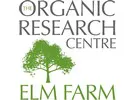The Organic Research Centre (ORC) begins its 40th year at new premises. Committed to organic sector scientific excellence and knowledge exchange, the organisation is now operational from Trent Lodge in Cirencester.
The relocation follows a rethink of the charity’s business model since the departure of long-standing CEO Nic Lampkin last year. The decision was made to sell the ORC’s previous headquarters, Elm Farm near Newbury, with the proceeds providing long-term stability, a source of investment income for core funding, and scope to invest in the organisation for the future.
The new premises are situated next to the Royal Agricultural University (RAU), which will help boost the ORC’s industry relations and collaborative activities as well as providing a base for research.
“We see this relocation as a great opportunity to enhance the ORC’s strategic links and positioning,” says Mike Turnbull, chairman at the ORC. “The majority of staff are moving with us and the team will be led by our new CEO, Lucy MacLennan. The ORC’s status as an independent charity won’t change.”

Mr Turnbull says the new three-year business plan builds on the ORC’s unique strength in combining scientific excellence with practical experience to deliver real benefits on the ground.
“A key part of the strategy is a change in our approach to securing contract funding, while maintaining our unique way of delivering research using participatory methods.
“Rather than reactively responding to bidding opportunities, we intend to prioritise areas of research and knowledge exchange that play to our strengths and develop pilot projects in these areas in advance of making bids for external funding.
“A benefit will be greater control of the research agenda and less reliance on opportunities that funders happen to favour, although there’s a place for the latter as well, provided the work we bid for fits with our strengths. We’ll be investing some of the proceeds from the Elm Farm sale as ‘seed funding’ over the next two years to support the change.”
Organic faces a challenging time over the coming months. Biodiversity is under unprecedented pressure and the future for UK farming and food supply is uncertain in light of Brexit and the Agriculture Bill.
“We’re confident we can continue to be a driving force in the British organic movement from our new home,“ concludes Mr Turnbull.
For more information: Organic Research Centre
Organic Research Centre
www.organicresearchcentre.com
